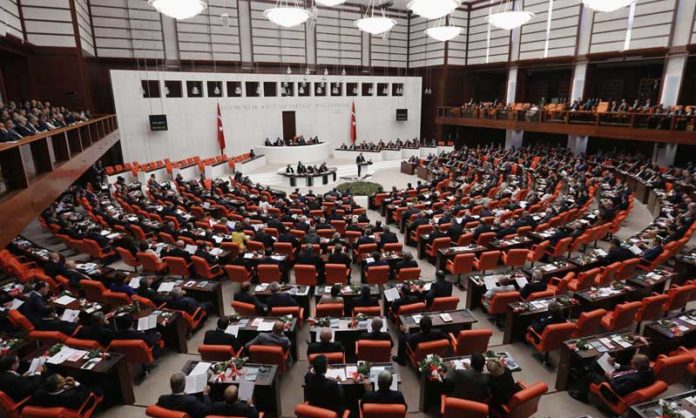By Selcan Hacaoglu and Firat Kozok
ANKARA (Bloomberg) — Turkish President Recep Tayyip Erdogan’s campaign to secure sweeping executive authority won parliament’s approval early Saturday, January 21. Turks will have the final say in a referendum that could be held in early April.
The parliament voted 339-142 to make the president the head of the executive and abolish the job of prime minister, triggering a referendum on the proposal and putting Erdogan one step away from building a power center unrivaled since the days of parliamentary founder Mustafa Kemal Ataturk. In Turkey’s system, amendments to the constitution need to be approved by 367 of 550 members to become law. Proposals that receive between 330 and 367 votes can be referred to a plebiscite.
“It’s still early to call a referendum date, we will share it when we pick up some momentum,” Erdogan said in a televised speech Sunday. “We see that our people favor a constitutional referendum and a president with party ties. We wouldn’t attempt this otherwise.”
As lawmakers from the ruling AK Party declared victory, legislators from opposition parties CHP and HDP warned that the attempt to transform Turkey’s government has polarized the nation. Erdogan’s supporters say it’s needed to overcome deepening security and economic challenges, while critics warn the overhaul would concentrate a dangerous amount of power in the hands of a single authority who has already embarked on a crackdown on political opponents, journalists, academics and activists.
“Turkey’s drift toward authoritarianism will accelerate in 2017 and the odds that President Erdogan will be able to achieve a formal, full executive presidency through a referendum on a new constitution are favorable,” Anthony Skinner, a director with U.K.-based forecasting company Verisk Maplecroft, said in a report published last week. “This is partly a by-product of the nationalist fervor Erdogan has drummed up in the aftermath of a failed coup to unseat him in July 2016.”









